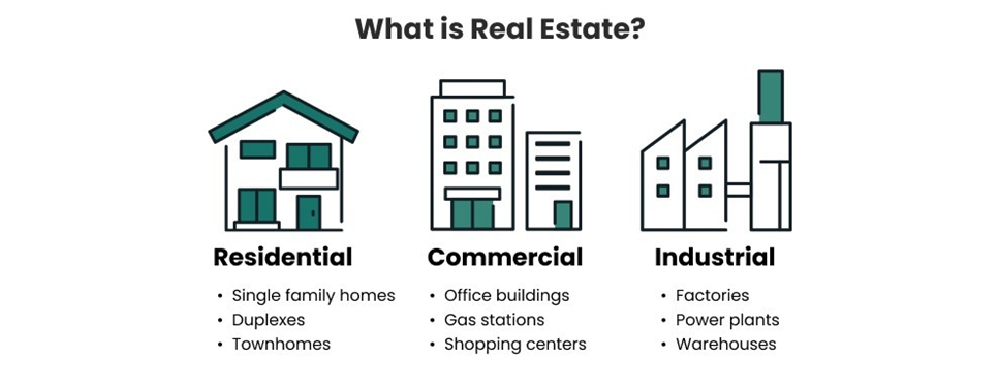
When browsing for the right retail space, 2 of the most typical business leases you'll come across are gross leases and triple net leases (or NNN "Net Net Net leases"). While both are popular-each type provides different advantages and disadvantages. When you're in the marketplace for retail area, it's helpful to be acquainted with both options to select the agreement that best serves your individual criteria and investment. Now let's check out the unique pros and cons of a gross lease vs. a triple net lease, beginning with necessary meanings.
What is a Triple Net (NNN) Lease?

Under the regards to a triple net lease, tenants are responsible for paying base lease to the property manager together with three (the "triple" in Triple Net) secret costs: residential or commercial property taxes, building insurance coverage, and common area upkeep (CAM).
The lease gets its "triple" name from the 3 secret expenses noted above while "net" represents the expenditures passed through to the tenant beyond base lease. This can take place monthly, quarterly, or on a yearly basis based upon professional rata share of the space.
Typically based on the residential or commercial property's worth, residential or commercial property taxes paid to the city government cover the general public expense of servicing the structure and surrounding neighborhood from facilities and fire security to lose collection. Note that these taxes are separate from any sales or excise taxes occupants may pay due to their type of business.
Common Area Maintenance (CAM)
CAM refers to charges connected to the maintenance, repair work, and restoration of shared areas of the building like car park, lobbies, restrooms, hallways, and elevators.
Building Insurance
Building insurance secures versus the cost of restoring (or repairing) residential or commercial property after unpredictable events arise such as fires, flooding, or storm damage. Plus, it can include liability insurance coverage that covers against on-premise injury claims.
Since all three of these expenses are paid directly by the tenant, the occupant has more control over how their cash is invested in addition to the standard of service.
A business listing with a triple net lease will usually price estimate the base rent. For instance, a commercial residential or commercial property may be noted as "$55 per foot, triple web" or "$55/sq ft/year, NNN." If not available, you may require to ask for just how much these pass-through expenditures expense from the agent or property manager. Typically, these are offered per square foot so it's simple to contribute to the base rent.
A gross lease contract requires the tenant to pay the residential or commercial property owner a flat rental fee in exchange for the exclusive usage of the residential or commercial property. This fee includes all costs related to residential or commercial property ownership from taxes and utilities to insurance coverage. Gross leases are typical in the business residential or commercial property rental market (think office suites or existing standalone buildings) and might be customized to satisfy the requirements of renters.
Consider gross leases the simplified equivalent to triple net leases. While the key expenses don't vanish, lease is estimated as an all-in rate, which indicates the tenant pays one swelling sum of rent while the proprietor handles the residential or commercial property taxes, typical location maintenance, and structure insurance coverage.
A full-service gross lease consists of any and all residential or commercial property costs (consisting of the triple webs and utilities) which safeguards the renter from variable costs like water and electrical power and water. This makes it much easier to anticipate expenses without having to take unforeseen expenses into account.
A modified gross lease consists of only the base rent and the NNN expenditures, but passes the cost of utilities and any other costs through to the renter.
You'll normally discover a gross lease priced estimate as a single quantity per square foot. It'll likewise be clear whether the lease is modified or full-service by how it appears. For example-a gross lease could appear as "$60/sq ft/year, modified gross."
Gross Lease vs. Triple Net
The main distinction between a gross lease and triple net lease? The proprietor is accountable for paying operating costs with a gross lease-while operating costs are the renter's obligation with a triple net lease. Beyond this distinction, there are a number of reasons a proprietor or occupant might select one lease structure over the other.
- Rent Costs
From a landlord's point of view, triple net leases are structured to serve as an exceptional source of passive rental earnings since they're more hands-off than a gross lease. On the other hand, the real lease paid to landlords is typically greater with a gross lease since it combines all major expenditures of a structure into one all-inclusive quote.
On the renter side, a gross lease is helpful since the cost of lease is fixed and all-inclusive, so there aren't extra expenses related to leasing the structure. No "base lease and extra lease" component to consider. This provides property owners a single rate offer that's much easier for renters to comprehend. There's likewise a time-saving element given that the tenant doesn't require to deal with any administrative duties associated with residential or commercial property financial resources.
Landlord and Tenant Responsibilities
Triple net leases safeguard both the proprietor and occupant. Landlords are protected if the costs connected with operating the residential or commercial property increase because those costs are passed straight on to the renters that benefit from making use of the site. Beyond less duty for property owners, they can also anticipate longer-term tenancy. For the tenant, triple net leases offer a capability to audit the Common Area Maintenance (CAM) and make certain they're preserved properly and within budget plan. Beyond audit power, they can work with professionals of their choice for ideal savings also.
Gross leases likewise have benefits and disadvantages around obligation. In a gross lease, the property manager spends for all expenditures associated with running the residential or commercial property while the renter pays a greater base rent to cover this. A customized gross lease passes some expenditures through to the tenant-typically metered energies like electricity and water. This simplifies the occupant's budget plan, given that they do not have to consider rising operating expenses, but at the same time it eliminates their ability to keep operating expenses down.
Unexpected Expenses
Depending upon the terms of a triple net lease, a job uptick may imply an increase in the shared expenditures a renter is anticipated to cover. Any increase in the expense of running a building is ultimately recouped in any type of commercial real estate lease-but a triple net lease secures proprietors from short-term fluctuations in typical location maintenance costs and residential or commercial property taxes. Gross rents empower tenants to budget plan expenses, which is especially beneficial for those with minimal resources or services looking for to maximize profit by decreasing variable expenses.
Lease Length
Triple net leases typically tend to be long-term since renters will not wish to sustain the costs related to a residential or commercial property's upkeep unless they prepare to be in the space for a significant time period. That's why triple net leases are more typical for longer-term leases covering a minimum of 5 to 10 years. Stability and predictability serve both the landlord and occupant.
On the other hand, gross lease term lengths are typically 3 to five years (if not shorter!) since the property owner carries more of the threat. Depending upon the business retail market, it's not uncommon to use a 12 or 18 month gross lease.
Building Maintenance
If you're a property owner, be sure to element in maintenance expenses. Common area maintenance (CAM) charges are the property manager's duty under a gross lease arrangement. So, if these costs suddenly rise due to the need for constructing maintenance, repairs, or increasing energy prices-it's the landlord who pays. The benefit? Landlords are empowered to much better control those costs by managing structure maintenance on their own terms.
On the tenant side, consider the truth that costs pass through from the landlord to you in a triple net lease, which means any renovation costs are efficiently paid by tenants up-front instead of paid back through marginally increased rent over the duration of the lease. Simply put? Higher restoration expenses for tenants.
Gross Lease Advantages And Disadvantages for Landlords
Including operating costs in the rental cost includes up to more earnings.
When the expense of living increases every year, property owners can pass on any inflammatory expenses to their renters.
Landlords need to take responsibility for any extra costs related to residential or commercial property ownership-and that includes the unexpected kind, like upkeep concerns or rising energy expenses.
Residential or commercial property owners supervise of lengthy administrative duties such as costs payment and more.
Gross Lease Benefits And Drawbacks for Tenants
The repaired expense of lease indicates there aren't any additional expenses associated with renting the building.
Tenants save time since they don't need to manage any administrative duties related to residential or commercial property finances.
Rent is generally higher, even though there are not any extra costs to pay.
Residential or commercial property upkeep may not be correctly kept current depending on the kind of proprietor and their top priorities.
Triple Net Lease Benefits And Drawbacks for Landlords
Landlords can rely on a triple net lease as a constant income stream.
Landlords can anticipate less hands-on management since any residential or commercial property management expenses (residential or commercial property taxes, common area upkeep, and structure insurance coverage) are on the occupant. Big image, that implies triple net leases offer property managers more energy and time to focus on their primary business.
Identifying trusted tenants prepared to sign a triple net lease might prove to be tough. Tenant credit risk can be a concern for landlords given that the renter's monetary health directly affects their capability to take care of operating expenditures.
Vacancy is likewise a factor. Downtime in-between occupants suggests no rental earnings can be found in.
Triple Net Lease Pros and Cons for Tenants
Tenants in a triple net lease are able to handle residential or commercial property appearance and maintenance.
Tenants have direct control over energy costs like water and electrical power in addition to their preferred insurance provider.
Unexpected expenses like tax liability or structure maintenance can and do emerge.
Tenants presume threats around upkeep costs, residential or commercial property tax dangers, and any insurance price increases.
Tenants will require to hang out and energy on residential or commercial property management from picking insurance coverage and handling tax concerns to comparing and working with maintenance specialists.
If landlords overestimate running expenses when figuring out the rental price, occupants may end up overpaying for choose expenses.
Ultimately, you'll find advantages and disadvantages to both gross and triple net leases. Full-service and modified gross leases provide advantages for both celebrations with the chance to strike a healthy balance-while triple net leases usually favor landlords due to the fact that the risk is shifted to the renters. Understanding the differences in between each lease structure lets you choose the alternative aligned with the benefits you seek and responsibilities you're prepared to take on. It's everything about what's best for you and your company.
___________________________
Who We Are

A one-stop shop servicing business genuine estate property owners and retail tenants, our group supplies all-encompassing services for NYC community retail.
Around here, our forward-thinking approach leverages emerging innovations, content-based marketing, and a deep understanding of the market to better match property managers and renters. Together we improve the leasing procedure so individuals like you can much better concentrate on their company.









